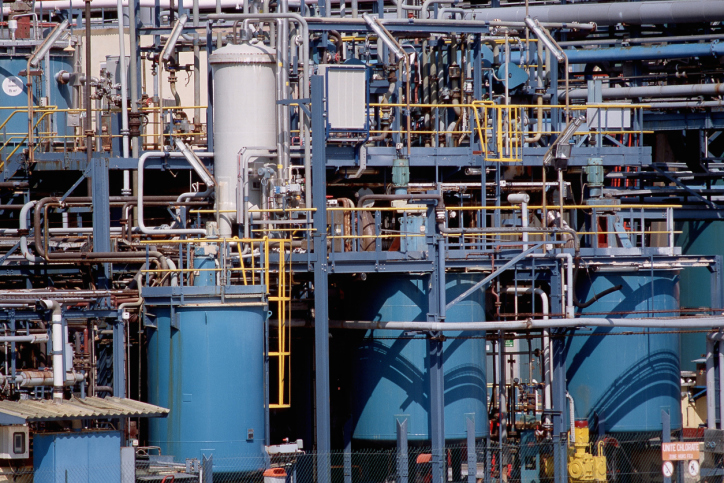Energy
Outlook Remains Rosy for Refiners (TSO, MPC, PSX, ALJ, WNR, CVI, VLO, DK, HFC, HES)
Published:
Last Updated:

Tesoro Corp. (NYSE: TSO), Marathon Petroleum Corp. (NYSE: MPC), Phillips 66 (NYSE: PSX), Alon USA Energy Inc. (NYSE: ALJ), Western Refining Inc. (NYSE: WNR), CVR Energy Inc. (NYSE: CVI) and Valero Corp. (NYSE: VLO) have all experienced share price gains of around 80% or higher in the past 12 months.
Delek US Holdings Inc. (NYSE: DK) Delek shares are up 175%. The laggard is HollyFrontier Corp. (NYSE: HFC), up just 62% in the past 12 months.
Each of these companies has figured out a way to take advantage of the wide difference between West Texas Intermediate (WTI) crude and Brent crude, which this morning sits at around $20 a barrel. Refining the cheaper WTI and selling the resulting fuel at the same price as if it were refined from Brent crude makes all the difference. How long can this last?
At least another year, maybe longer, for a couple of simple reasons. First, the mid-American pricing point at Cushing, Okla., is full to the brim and there is still relatively little pipeline transportation out of Cushing to the Gulf Coast, the center of U.S. refining. New pipelines, even if approved, will not be in service until later this year, at the earliest.
The second reason is not so simple, but worth noting. And like real estate, it is all about location, location, location. The heavily populated states along the Atlantic coast are driving the price of U.S. gasoline. The cost basis for East Coast gasoline is Brent, regardless of what kind of crude is actually used. In most cases, the crude is Brent because there is no easy way to get crude from North Dakota or Canada to the East Coast.
The refinery closures in the east have contributed to a short supply of gasoline, and the difference is being made up by gasoline imports from Europe. Again, based on the price of Brent crude with the added expense of transportation across the Atlantic. European refiners then are bidding up the spot price for Brent in order to acquire crude to refine and send the products off to New York.
East Coast gasoline inventories are low, which results in higher prices for immediate deliveries than for future deliveries, a commodity market condition known as backwardation. Any rumor or news or indication only magnifies the backwardation effect, even if only temporarily.
The AAA Daily Fuel Gauge this morning indicates that the average price of gasoline today is $3.778 a gallon, about $0.15 higher than a week ago. Gasoline supplies on the East Coast are expected to be tight this summer, especially given the recent closure of the Hess Corp. (NYSE: HES) refinery in New Jersey. Until inventories increase on the East Coast, all refiners, whether in Europe or the United States, are very likely to continue making handsome profits and the share prices are likely to continue rising.
Start by taking a quick retirement quiz from SmartAsset that will match you with up to 3 financial advisors that serve your area and beyond in 5 minutes, or less.
Each advisor has been vetted by SmartAsset and is held to a fiduciary standard to act in your best interests.
Here’s how it works:
1. Answer SmartAsset advisor match quiz
2. Review your pre-screened matches at your leisure. Check out the advisors’ profiles.
3. Speak with advisors at no cost to you. Have an introductory call on the phone or introduction in person and choose whom to work with in the future
Thank you for reading! Have some feedback for us?
Contact the 24/7 Wall St. editorial team.